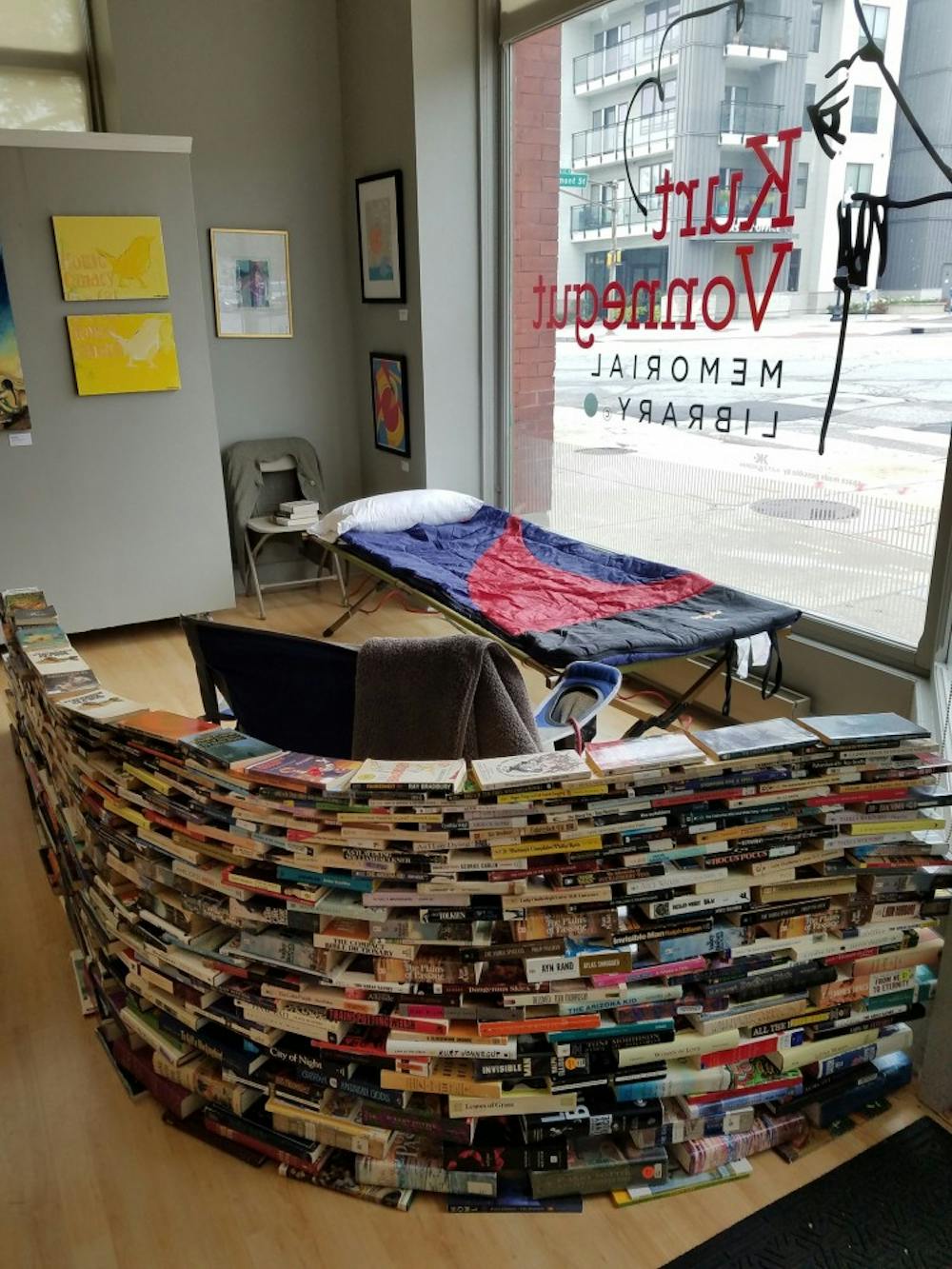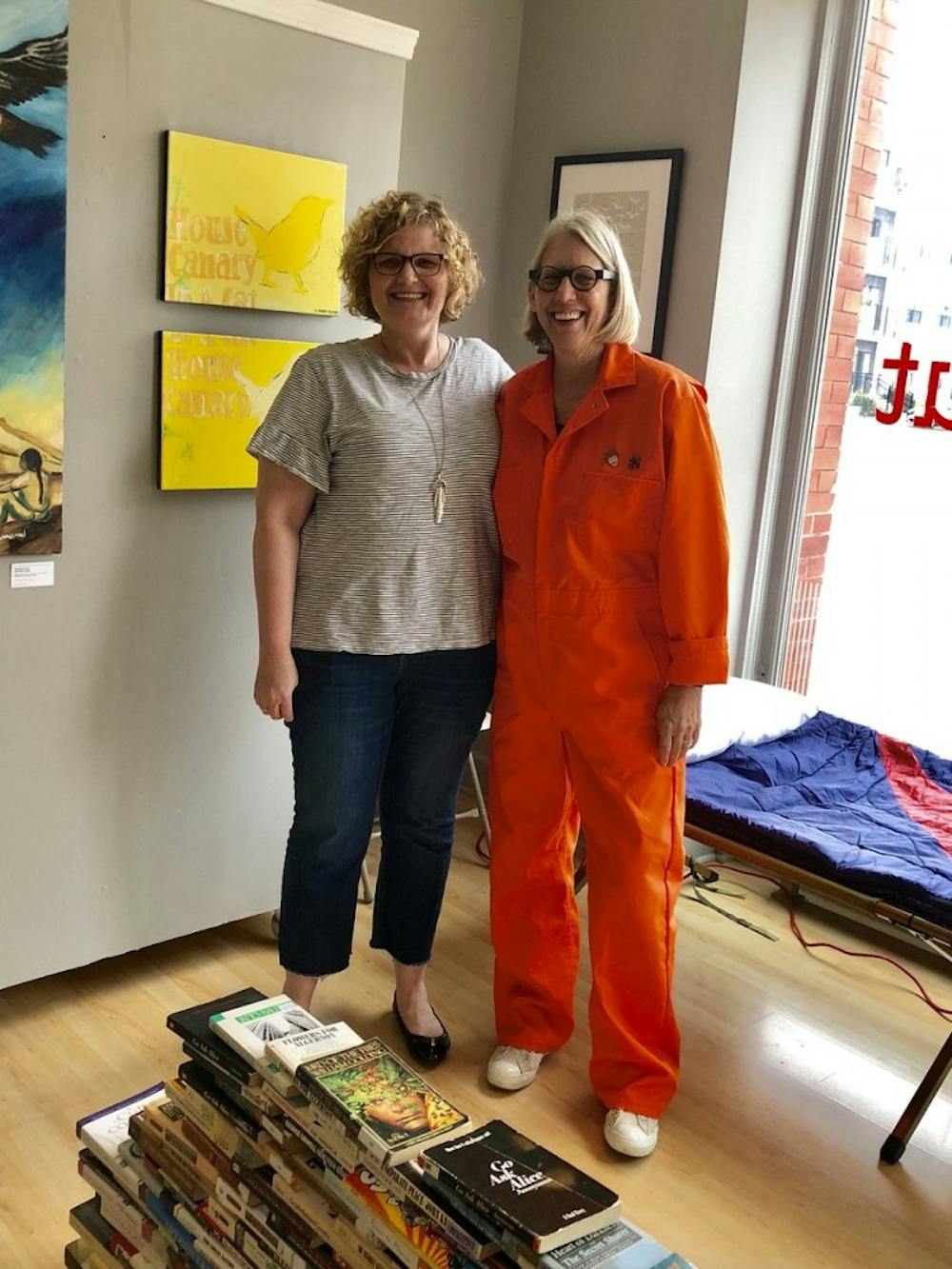In an effort to highlight the importance of literary freedom, Ball State English professor Rai Peterson is being imprisoned, not behind bars, but behind a wall of banned books at the Kurt Vonnegut Museum and Library in Indianapolis for the week.
The week long imprisonment in the library’s storefront window is part of the annual tradition of Banned Books Week, which seeks to bring awareness for books that have been banned or censored in schools.

Rai Peterson, Photo Courtesy
“This is a very symbolic imprisonment,” Peterson said. “I’m there to bring attention to the idea that we never want to have censorship. We never want to have thought and information censored in our country.”
The event also features discussions and presentations by writers, journalists and other professionals based around the social topics discussed in Indianapolis-native Kurt Vonnegut’s books, which have been banned from a variety of schools.
“Books are still banned today,” Peterson said. “We think of that as a past practice but it still happens.”
While Peterson will not be allowed to leave the building, she will blog from the library and interact with visitors. She also will read works associated with censorship like author Salman Rushdie’s controversial “Satanic Verses” and poet John Milton’s “Areopagitica,” an essay defending freedom of speech and expression.
When Peterson is released on Saturday, she’ll be taking part in a panel discussing women writers and mental health challenges of creative minds.
“You can imprison a writer. You can imprison an activist like Nelson Mandela. It doesn’t stop their ideas from getting out. It doesn’t stop them from speaking,” Peterson said.
She said the library’s director, Julia Whitehead, told her past exhibit occupants initially looked forward to the opportunity, but were grateful to get out by the end of the week.
“I do think that there will be a kind of psychological cost of being trapped in a glass window in downtown Indianapolis for a week,” Peterson said.
According to the library’s website, Peterson, alongside Ball State students, had previously been involved in a project with the library in 2012, where they created a traveling exhibit, oral history interviews, a digital document repository, a business plan and items for the gift shop. They later took the exhibit to Dresden, Germany, and made public presentations around the country about Kurt Vonnegut’s life and his book, “Slaughterhouse-Five.”
“Slaughterhouse-Five” has been subject to numerous attempts at being censored or banned in the past. In 2011, a Missouri high school board voted to ban the book, prompting the library to donate one free copy of the book to students at the high school.
The book was also a subject of the 1982 Supreme Court case ‘Island Trees School District v. Pico’ which concluded local school boards may not remove books from school libraries simply because they dislike the ideas portrayed in them.
Peterson said the common reason people ban books is because they find a page offensive without understanding how the page fits into the context of the story.
“I think that a lot of times books get banned because of that kind of hysterical fear,” Peterson said.
Christina O’Connell, the programs and communications associate at the library, said students who are interested in reading a certain book should not have that choice taken away from them.
“Reading stories and deciding whether they connect with them or not is very important,” O’Connell said.
Contact Rohith Rao with comments at rprao@bsu.edu or on Twitter @RaoReports.





